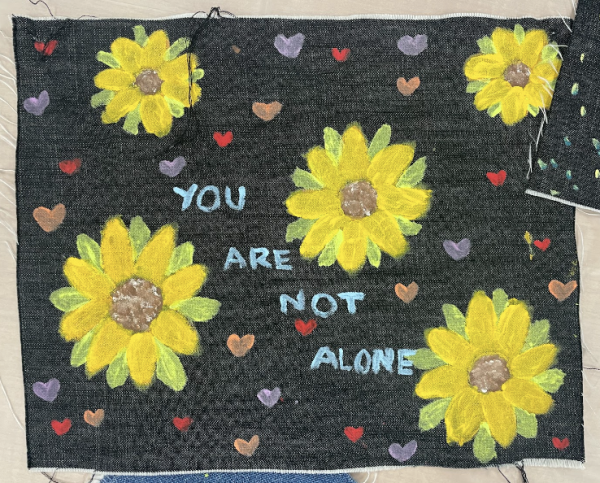
I turn on the television, and I’m immediately hit with an image of a beautiful woman in nothing but a skimpy swimsuit, her hair and makeup perfectly done. She is staring longingly at a massive burger in her hand.
The camera pans to the side to see the woman take a huge, sensual bite. In the background, male spectators gaze in awe of this gorgeous woman.
When the commercial ends, one thing is clear. They’re selling more than just a burger.
They’re selling sex.
Commercials like this are not uncommon.
Everywhere we turn, media are there, reinforcing and creating standards for behaviors and beliefs.
Now more than ever, messages from the media penetrate our lives. People are being hit on all sides: from cellphones, iPods, Facebook, Instagram, television, etc.
While the blame for sexual assaults can’t be placed entirely on the media, it does contribute to behaviors and beliefs that might lead one to act in inappropriate ways.
Nearly 25 percent of sexual assaults involve intimate partner violence, according to the Women Against Violence Against Women group.
Intimate partner violence describes any physical, sexual or psychological harm by a current or former partner.

As this chart shows, victims of sexual assault often knew the perpetrator in some capacity. This instantly increases the potential for sexual assaults, as perpetrators can be someone the victim trusted.
About “one-third of undergraduate women report one or more unwanted sexual interactions, ranging from kissing to intercourse, during a single year,” according to “Gendered Lives” by Julia T. Wood.
This number is unacceptably high. And yet this is just during one year.
By the end of senior year about “one-half of college women” will report “one or more unwanted sexual interactions during their college careers.”
One contribution to the frequency of sexual assaults is the reinforcement and perpetuation of rape culture in the media.
Rape culture is the way in which society blames the victims of sexual assault and normalizes male sexual violence.
This can include “jokes, TV, music, advertising…that make violence against women…seem so normal that people believe rape is inevitable.”
Almost all forms of media, from movies, TV, advertisements and video games, portray women as sex objects and men as strong, violent, aggressive and in charge.
It’s so common that it doesn’t even seem problematic or strange anymore, but inevitable.
The media often displays men in positions figuratively and literally above women, especially in advertisements, while women are frequently in varying degrees of undress.
Even movies are labeled as “male” and “female”.
For instance “chick flicks” are all about love, romance and finding the right guy. Movies described and marketed for guys are usually all about violence and aggression, like the film “300.”
These messages of the dominance of men and the submission and powerlessness of women perpetuate the idea of rape culture by making female sexualization seem normal and even desired, as well as affirming and normalizing aggressive behaviors in men.
Because of these trends, the solution to the issue of sexual assault is often focused on female victims, and what they can do to resolve these problems instead of male perpetrators.
The media are not completely to blame for sexual assault, but it certainly helps to create a culture in which the idea is normal, if not inevitable.
It doesn’t have to be.
Allison Galbreath can be reached at [email protected] or @agalbreath19 on Twitter.













